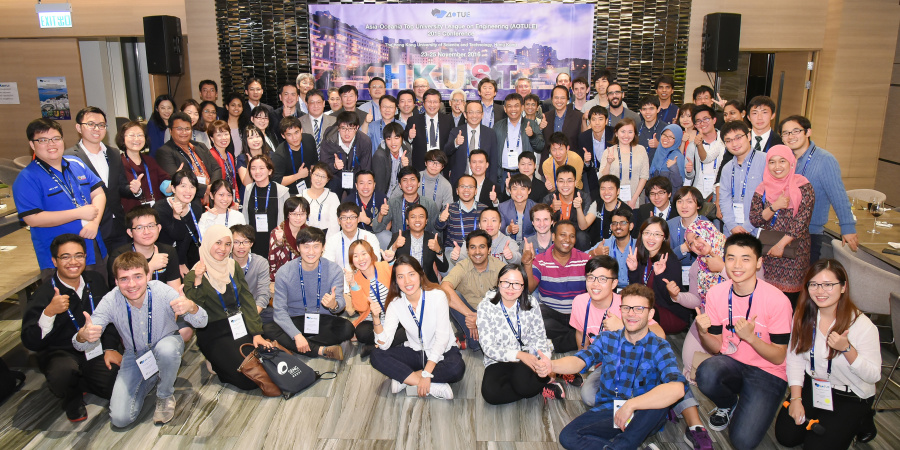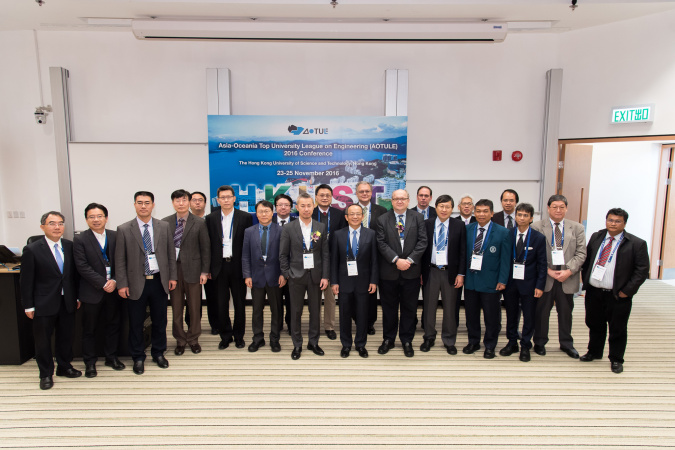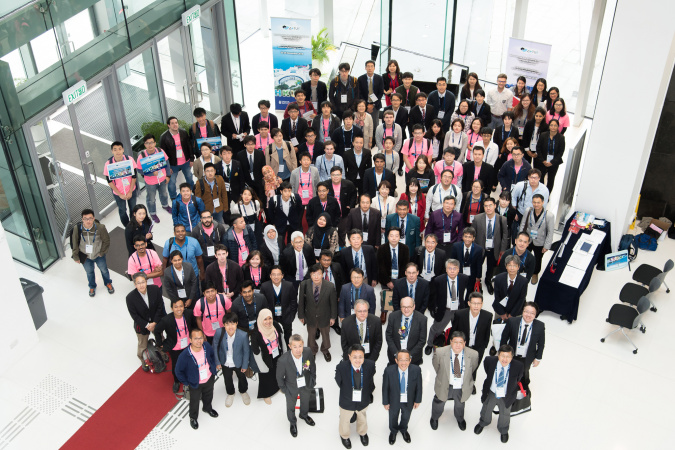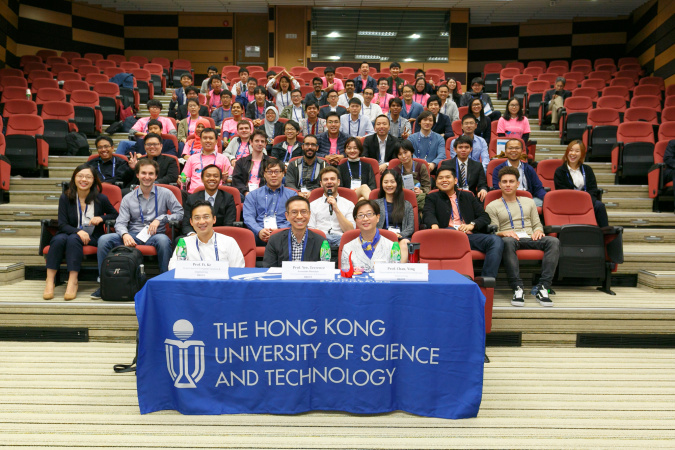Leaders of Top Engineering Institutions Gather at HKUST for Asia-Oceania Top University League on Engineering Conference 2016
The School of Engineering of the Hong Kong University of Science and Technology (HKUST) organized the Asia-Oceania Top University League on Engineering (AOTULE) Conference 2016 during November 23-25. Composed of the Deans’ Meeting, Administrative Staff Meeting and Student Conference, the annual AOTULE conference was well received by more than 110 deans, academics, senior administrative staff and students in engineering from the 12 members of AOTULE league, namely (i) Bandung Institute of Technology, Indonesia; (ii) Chulalongkorn University, Thailand; (iii) Hanoi University of Science and Technology, Vietnam; (iv) Indian Institute of Technology Madras, India; (v) Korea Advanced Institute of Science and Technology, Korea; (vi) Nanyang Technological University, Singapore; (vii) National Taiwan University, Taiwan; (viii) The University of Melbourne, Australia; (ix) The Hong Kong University of Science and Technology, Hong Kong; (x) Tokyo Institute of Technology, Japan; (xi) Tsinghua University, China; and (xii) University of Malaya, Malaysia.
The Deans’ Meeting took place in parallel with the Administrative Staff Meeting and Student Conference. With the themes of “Best Practices of Innovative Teaching”, “Best Practices of Entrepreneurship” and “Research Collaboration Across Partner Institutions”, the Deans’ Meeting explored several collective responses to the perceived or real “avalanche of change” in higher education to enhance engineering education and set policies and guidelines for engineers across the region.
Centered on the theme of “Student Mobility and Professional Development on Postgraduate Studies”, the Administrative Staff Meeting enabled staff representatives from member institutions to open a constructive dialogue to strengthen cross-institutional student exchange for knowledge advancement and the professional development of research postgraduate students in engineering.
The School of Engineering embarked a new program in the Student Conference. Students not only presented their own research like in past conferences, but also collaborated with their counterparts of different backgrounds from other universities to work on a team project on “Global Problems Related to Big Cities”, applying knowledge of green built environment, sustainable living, and big data.
Officiating at the opening ceremony, Dean of Engineering Prof Tim Cheng said, “Knowing and learning alongside people across cultures and disciplines is vital for preparing students for thriving in an increasingly diverse global society. Dynamic exchanges yield creative results and often generate unique ideas and innovative solutions to problems. Such a powerful synergy should be highly encouraged among student groups.”
Prof Cheng added that, “This year is a very important milestone for HKUST, as it marks our 25th anniversary. The University’s anniversary slogan is ‘Innovating Today, Imagining Tomorrow’. We are pleased to invite Deans of Engineering and representatives to this auspicious occasion and to explore the potential collaboration in online education to further improve international partnerships and student/staff mobility.”
AOTULE was founded in 2007 by forming strong collaborative relationships through exchanges of information, students, faculty members and staff among the top ranking engineering universities in the Asia-Oceania region. With 12 member institutions, AOTULE promotes inter-university cooperation through joint programs including an annual Deans’ Meeting, student workshop and exchanges of students and staff to improve the quality of engineering education and research of the members. It also aims to broaden participating students’ perspectives through education, research and cross-cultural interactions.
Related link:




